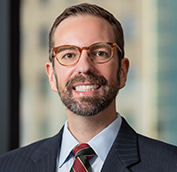IRS Announces Delay of Implementation of SECURE 2.0 Act’s Roth Catch-Up Contribution Provision for Two Years
As signed into law, Section 603 of the SECURE 2.0 Act of 2022 (SECURE 2.0) required that effective as of January 1, 2024, participants in 401(k) plans, 403(b) plans, or governmental 457(b) plans, who were age 50 or older and whose Social Security wages for the previous year exceed $145,000 (indexed), only be permitted to make catch-up contributions under such plans on a Roth (after-tax) basis. This requirement of SECURE 2.0 has raised a number of legal and plan administration concerns among plan sponsors and retirement plan service providers.
On the legal side, plan sponsors were concerned that plans that did not offer Roth contributions would have to cease allowing older workers to make catch-up contributions effective as of January 1, 2024. This concern stemmed from language in Section 603 that required all plan participants to have the option to make catch-up contributions on a Roth basis if any plan participant is required to make their catch-up contributions on a Roth basis. Consequently, in order to comply with the requirements of SECURE 2.0, sponsors of plans which do not permit Roth contributions would have to either begin allowing Roth contributions effective January 1, 2024, or eliminate the ability of older participants to make catch-up contributions to the plan. In addition, an apparent drafting error in SECURE 2.0 can be read as eliminating the ability to allow catch-up contributions from the Internal Revenue Code.
On the administrative side, plan service providers and plan sponsors have struggled to design systems to timely and accurately identify those plan participants who would be required to make catch-up contributions on a Roth-only basis. Appropriately identifying those workers limited to Roth catch-up contributions would typically require the sharing of data between retirement plan recordkeepers and the plan sponsor’s payroll provider. Service providers and plan sponsors have expressed concern that coordinating information sharing among all the affected parties would not be possible by January 1, 2024.
In response to these concerns, the Internal Revenue Service issued Notice 2023-62 on August 25, 2023. In this notice, the IRS announced transition relief that will give plan sponsors and plan service providers additional time to prepare for the implementation of Section 603 of SECURE 2.0. The transition relief provides, among other things, that:
- As anticipated, SECURE 2.0 does not prohibit plans from offering catch-up contributions.
- Until January 1, 2026, retirement plans that: (i) allow participants who are age 50 or older and had wages in excess of $145,000 (indexed) in the previous year to make catch-up contributions on a pre-tax basis or (ii) do not provide for designated Roth contributions; will be treated as satisfying the requirements of Section 603 of SECURE 2.0.
- The Treasury Department and IRS intend to release additional guidance with respect to Section 603 of SECURE 2.0, providing that: (i) plan participants who do not have wages for purposes of FICA for the preceding calendar year (e.g., partners, self-employed individuals, and certain governmental employees) are not subject to the requirement to make catch-up contributions on a Roth basis; (ii) plan sponsors may treat an election to make catch-up contributions on a pre-tax basis by a plan participant required to make catch-up contributions on a Roth basis pursuant to Section 603 of SECURE 2.0 as an election to make such contributions on a Roth basis; and (iii) in the case of multiple employer and multiemployer plans, Section 603 of SECURE 2.0 would not require unrelated employers to aggregate the wages of plan participants to determine which participants are limited to making only Roth catch-up contributions.
In addition to providing a preview of future guidance, Notice 2023-62 also requests comments on whether future guidance should address plans that allow catch-up contributions, but do not include a qualified Roth contribution program.
Plan sponsors are not required to take any action in response to Notice 2023-62; but, plan sponsors that were contemplating adding Roth contributions to their plans effective January 1, 2024, in order to comply with Section 603 of SECURE 2.0 may want to revisit those plans.
